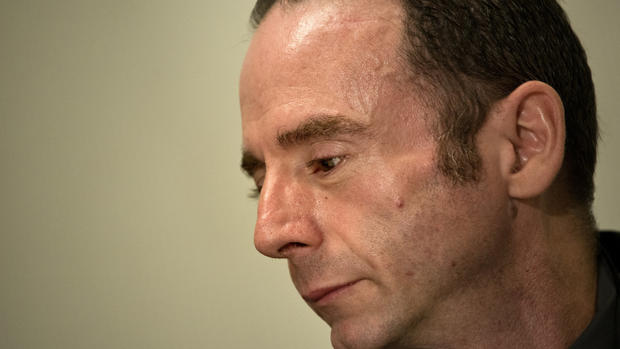Two men "cured" of HIV no longer taking treatments
Doctors are reporting that two previously HIV-positive men who received stem cell transplants to treat their cancers no longer have any traces of the virus even after stopping treatment.
Dr. Timothy Henrich, an associate physician at Brigham and Women's Hospital in Boston, said at the International AIDS Society conference in Kuala Lumpur that the men are no longer taking AIDS drugs. Currently, the first patient has been off treatments for 15 weeks and the other has been off for seven weeks, Reuters reported.
The patients received the stem-cell transplants after they had been diagnosed with the blood cancer lymphoma. In July 2012, Henrich had reported that the two men had undetectable levels of HIV in their blood, but they were still taking medication at the time.
Currently 33.4 million people are living with HIV (human immunodeficiency virus) or AIDS (acquired immune deficiency syndrome), according U.S. government statistics.
In the U.S. alone, 1.7 million people have been infected with HIV by the end of 2008, the most recent year where statistics are available. Every 9.5 minutes, someone is infected with HIV. Currently, one out of five people living with HIV are unaware that they are infected.
These two men aren't the first to be "cured" of HIV. Timothy Ray Brown, a man who previously had HIV and leukemia, received a stem cell transplant from a person with a genetic mutation called delta 32 that made them HIV-resistant. Researchers in California found traces of HIV in his tissue in July 2012, but Brown claims that the any virus that remains is dead and can't replicate.
However, a stem cell transplant is risky and has only been performed on people who may die from cancer. It is not a realistic treatment option for most people living with HIV, who can usually live normal, comfortable lives if they take antiretroviral drugs.
Any transplant requires weakening the immune system, which puts the patient at a 15 to 20 percent risk of death, the New York Times reported. A third HIV-positive patient who had received the same treatment as the Boston subjects died from cancer. The subjects' bone marrow donors did not have the delta 32 mutation.
"The next step is to confirm this in larger numbers," said Dr. Sharon Lewin, an infectious disease professor at Monash University in Melbourne, Australia, told MedPage Today.
Lewin, who did not treat the Boston patients, added that she did not believe that the stem cell treatment would become widespread because of the risk and money involved. However, patients who undertake the treatment are "absolutely instrumental in moving the science forward."
There has been another way HIV has apparently been cured in humans. A baby who was born infected with HIVhas had no traces of the virus for more than 2 and a half years after receiving treatment shortly after she was born. Doctors at the University of Mississippi began giving the HIV-positive infant aggressive three-drug HIV treatments within 30 hours of her birth. The medications appear to have removed HIV from the baby's bloodstream before the body was able to store the virus, which can replicate in a person's system after treatment is stopped.
The World Health Organization pushed for earlier treatment of HIV earlier this week. Currently, most countries including the U.S. recommend beginning antiretroviral therapy (ART) when a patient's CD4 cells (also known as T-cells) drop below 350 cells/mm3.
The WHO now recommends treatment begin as soon as the person's cell count drops below 500 cells/mm3. They also pushed for ART for all children under 5 with HIV, all pregnant and breastfeeding women with HIV and all HIV-positive people who have one partner who is uninfected.
